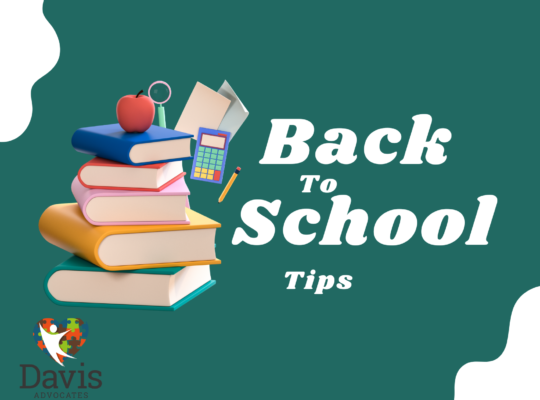As a parent or guardian of a child with special needs, attending an ARD (IEP) meeting is important in ensuring that your child is offered an education program that enables them to make appropriate progress in light of their circumstances. To help make the most of the meeting, here are some constructive tips to help you prepare and navigate the process.
1. Review your child’s current IEP
Before the meeting, take the time to review your child’s current IEP. This will help you understand the goals, accommodations, and modifications that have been put in place and determine whether they are working or not. If you notice any areas where your child is struggling, make a list of questions or concerns that you would like to discuss during the meeting. See Preparing for an ARD (IEP) Meeting as a Parent for more information on preparing for the ARD (IEP) Meeting.
2. Bring a support person
Attending an IEP meeting can be overwhelming, and having a support person can help. This person could be a family member, a friend, or an advocate. They can help you stay focused, understand the discussions, and take notes.
3. Arrive prepared
Bring a copy of your child’s current IEP, any evaluations or assessments, and any other relevant documents. Make sure to bring a notebook and pen to take notes during the meeting. You may also want to bring a list of questions or concerns that you would like to discuss during the meeting. I discuss how to create a Parent Agenda in a previous post.
4. Participate in the discussion
During the meeting, the school staff will discuss your child’s progress, strengths, and areas of need. They will also discuss goals and services for the upcoming year. It’s important to participate in the discussion, share your perspective, and ask questions. Ask Who, What, When, Where, Why, and How questions. Remember that you are an equal partner in the IEP team, and your input is valuable.
5. Protect the Parent-School Relationship
When communicating with members of your child’s school team, it’s important to focus on the positive and work together to find solutions. Keep emotions and negative opinions aside and stick to the facts. Instead of blaming or criticizing a team member, try to understand their perspective and work together to find a way forward. Remember, protecting the parent-school relationship is key to ensuring the best outcome for your child. By building a constructive and collaborative relationship, you can work together to create a positive and supportive learning environment for your child.
6. Learn to Negotiate
Learn to negotiate effectively by seeking win-win solutions to problems. If you are not making progress with a request, propose implementing it as a trial for a specified period and then set a date to review the results as a team. Make an effort to understand the school’s perspective to help you develop solutions that will enable the school to meet your child’s needs.
7. Review and sign the IEP
After the meeting, review the proposed IEP carefully. Make sure that all of your concerns and questions have been addressed. You can ask for a copy to review before signing the IEP. If you feel comfortable with the proposed IEP, sign it. If not, discuss your concerns with the team and work together to make revisions. If you cannot reach an agreement on an issue, several dispute resolution options are available. I will discuss them in detail in a future post.
8. Follow up
After the meeting, follow up with the team to ensure that the agreed-upon services and accommodations are being implemented. Monitor your child’s progress and communicate regularly with the team. If you have any concerns or questions, don’t hesitate to contact the school.
By following these constructive tips, you can help ensure that the ARD meeting is a positive and productive experience for you and your child. Remember that the goal of the meeting is to develop an appropriate education plan that allows your child to make appropriate progress in light of their circumstances.
In my upcoming blog post, I will share tips for following up after the ARD (IEP) meeting.
Feel free to contact me if you have any questions or concerns about your child’s special education program.
This post intends to give you a general idea of the special education process. Samantha Davis cannot predict the outcome of any meetings, including ARD (IEP) meetings held for your child. Special education eligibility and/or services that are offered to your child are based on the decision of the ARD (IEP) committee as a whole.







